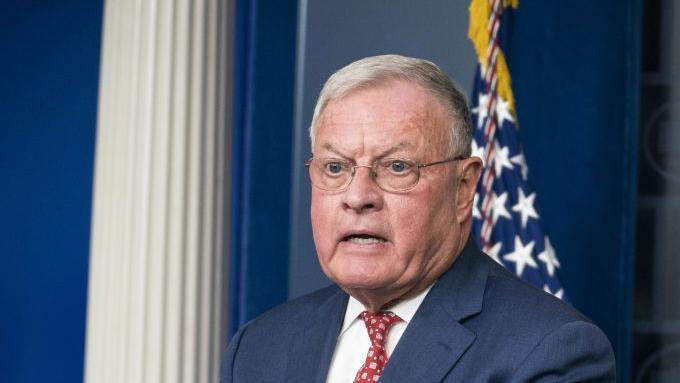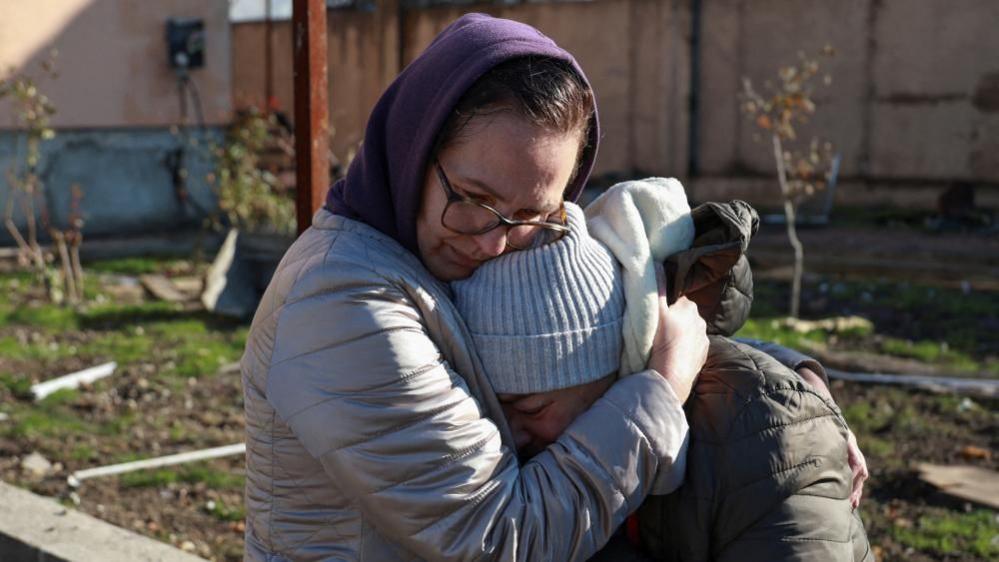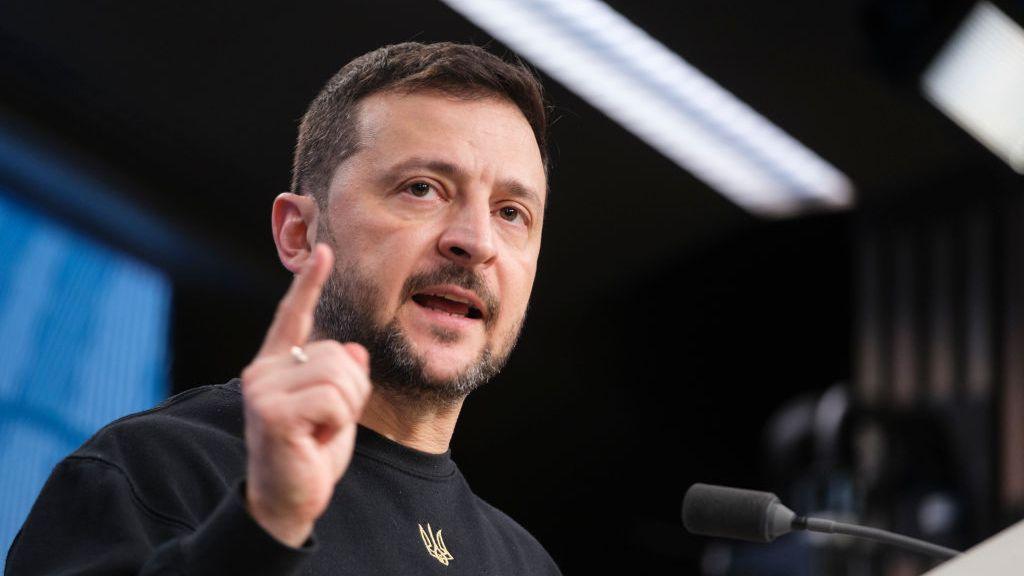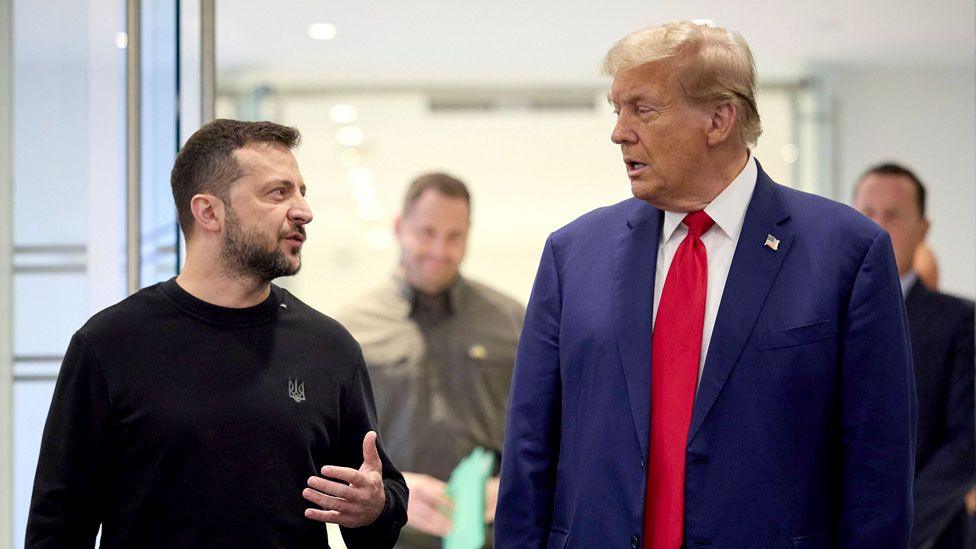What has Trump's chosen Ukraine-Russia envoy said about ending the war?

- Published
President-elect Donald Trump has nominated Keith Kellogg, a former national security adviser and retired lieutenant general in the US military, to be special envoy to Ukraine and Russia in his second administration.
Kellogg is likely to be at the centre of negotiations to end the ongoing war in Ukraine, should Russia and Ukraine agree to take part.
Trump has promised to stop the war on his first day back in office - though he has not provided any details on how he plans to do that.
Kellogg has advocated for tough negotiations with Russia and Ukraine in order to bring the war to an end.
Earlier this month, in an interview on Fox News - where he has been a paid contributor since 2022 - Kellogg specifically noted that the war would be the "biggest thing" Trump has to solve in his second administration.
Kellogg's ideas for how to do this have been outlined in a research paper published by the America First Policy Institute, external, a pro-Trump think thank.
In the document, published in April, Kellogg advocated for "a formal US policy to seek a ceasefire and negotiated settlement of the Ukraine conflict".
He proposed that Ukraine would only get further US aid if Kyiv participated in peace talks with Moscow, but also suggested that if Moscow refused to take part, Washington would then give Kyiv more aid.
Co-authored with Fred Fleitz, who like Kellogg, served as a chief of staff on Trump's National Security Council during his first presidency, the paper said Russia could be convinced to negotiate if the US promised to "put off" Ukraine's Nato membership for an extended period of time.
It also said the negotiations should include establishing a "long-term security architecture" for Ukraine's defence.
Months later and following Trump's election win, it is unclear exactly how much of this plan could be adopted by Trump himself.
Speaking to Reuters news agency, external in June after presenting the plan to Trump, Kellogg said of Trump's reaction: "I'm not claiming he agreed with it or agreed with every word of it, but we were pleased to get the feedback we did."
Kyiv has maintained a diplomatic stance towards Trump.
Speaking to the BBC earlier this month, former Ukrainian Foreign Minister Dmytro Kuleba said Trump has "taken a very smart approach" regarding his stance on the war "by clearly setting out the goal – 'I'm going to fix it' – but without getting into details".
Kuleba said Trump will not view negotiations as "simply transactional".
"President Trump will undoubtedly be driven by one goal, to project his strength, his leadership," he said. "And show that he is capable of fixing problems which his predecessor failed to fix."
Since winning the election, Trump has spoken to Ukrainian President Volodymyr Zelensky, who congratulated him on his victory.
A source in Ukraine's presidential office told the BBC that the "good lengthy conversation" between Zelensky and Trump lasted "about half an hour", and that "it was not really a conversation to talk about very substantial things".
The president-elect has also reportedly spoken to Russian President Vladimir Putin.
During a phone call, he urged Putin not to escalate the war in Ukraine and reminded him of "Washington’s sizeable military presence in Europe", the Washington Post reported, citing several people familiar with the matter.
Following Trump's election victory, Putin congratulated the president-elect, saying that what Trump has said “about the desire to restore relations with Russia, to help end the Ukrainian crisis, in my opinion, deserves attention at least".
The Kremlin has also welcomed Trump's claim that he could end the war within 24 hours, but added that it would wait for further policy details.
The US has been the biggest source of military aid to Ukraine, including weapons, equipment and financial assistance.
Kellogg's appointment as a special envoy normally requires Senate confirmation.
Related topics
- Published21 November 2024

- Published16 November 2024

- Published6 November 2024

- Published17 February
